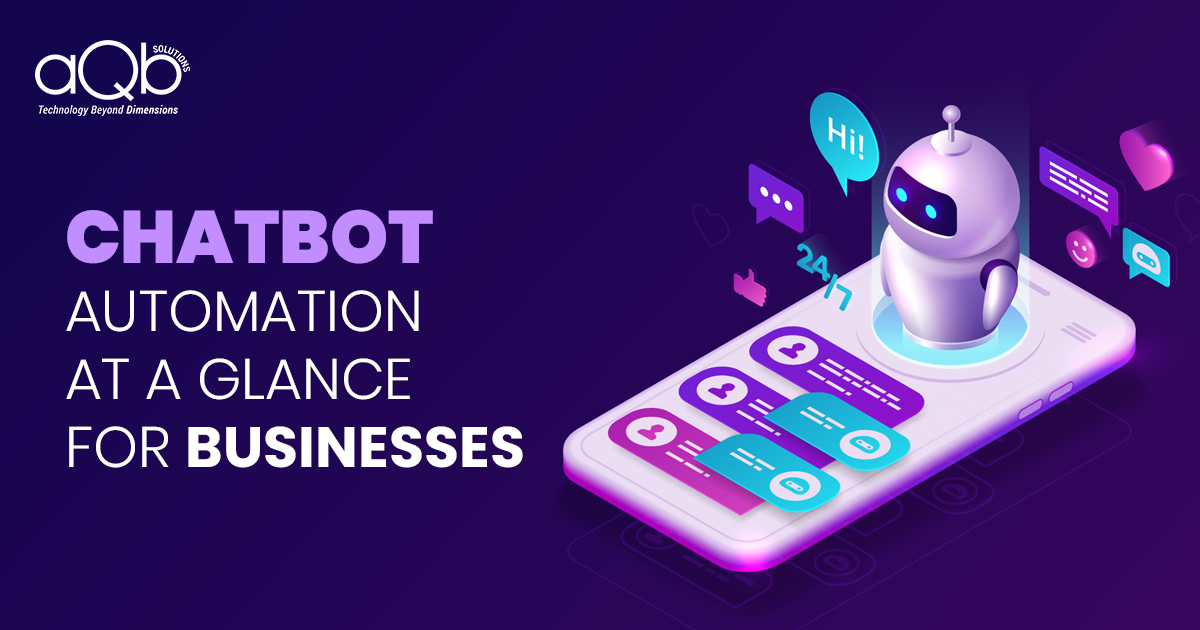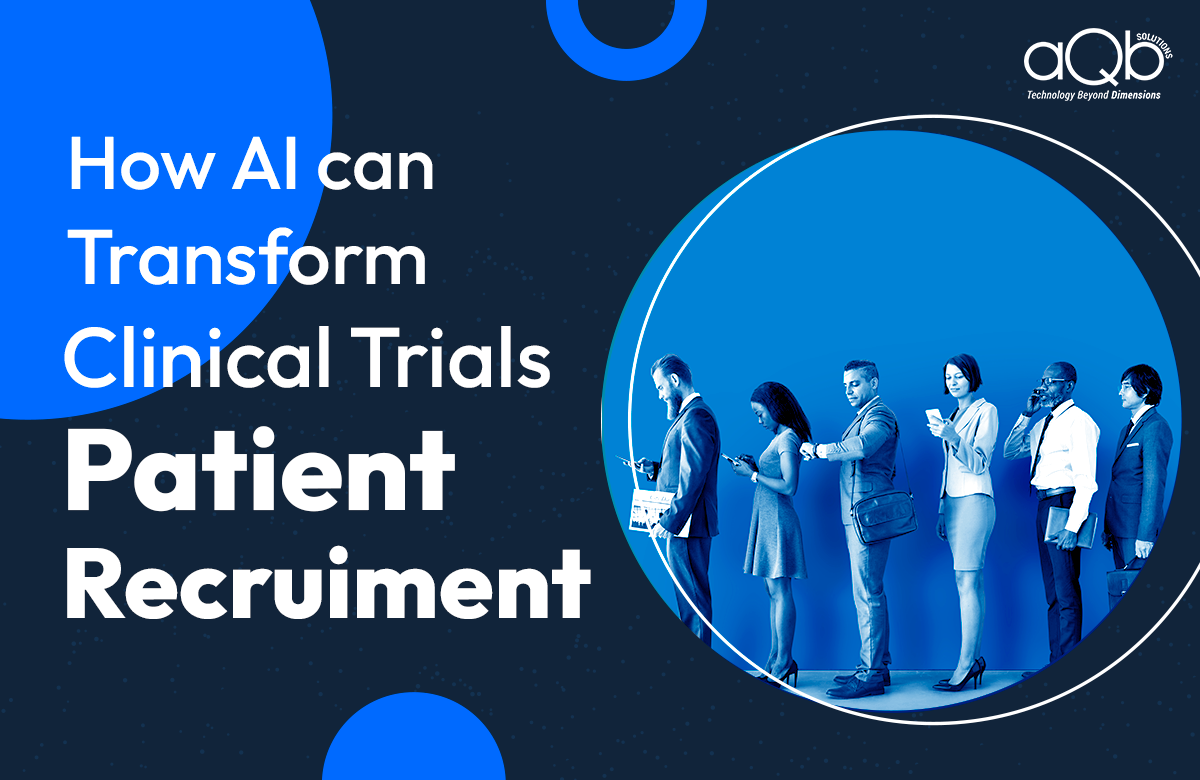The popularity of chatbot technology has spiked up dramatically ever since Messenger chatbots were launched by Facebook back in 2016. Since then, brands have been tapping into its potential for the good of their businesses. Most of the people browsing the internet have interacted with chatbots at some point.
When you land on a website, you might have seen a chat interface at the bottom of the screen. It answers your questions, helps you find information about a service or product, offers options for upselling, and more. For businesses, chatbots automate customer support as well as provide 24×7 help.
Here, we’ll take a deeper look at chatbot automation, how it helps businesses, and some use cases of AI chatbots.
What is Chatbot Automation?
Chatbot automation, i.e., leveraging chatbots by businesses, contributes to fulfillment of business goals. One of the ways chatbots assists businesses is by helping them gain a deeper understanding of their customers.
Customers would rarely get a chance to talk to your business directly. With chatbots, you get detailed, actionable records of the greatest pain points of your customers. This helps your business better their services or products.
Business leaders have claimed that chatbots have increased their sales by, on average, 60%. One reason for this is that chatbots are a seamless platform to present consumers with algorithm-driven recommendations which can introduce consumers to the new products and services of your business. Chatbots can also increase sales due to their fast response rates and 24/7 availability.
Chatbots can also improve the internal processes and communication in a company. For example, companies can use chatbots in the onboarding process. A new employee can ask questions to a chatbot and receive the answers instantly. The new employee doesn’t need to contact different departments to clarify their doubts.
Chatbot systems are built to demonstrate how a human behaves while doing conversations and it requires continuous tuning and testing. By conversing with customers, chatbots collect the basic information for tracking the products customers like the most.
Businesses can save time, effort, and money they waste on landing pages by embracing AI-enabled chatbot automation that enhances customer satisfaction and experience. Chatbots leverage artificial intelligence to understand website users’ requests and queries and generate the most appropriate responses.
Benefits of Chatbot Automation for Businesses
Some of the key benefits of leveraging a chatbot for your business website are as follows:
-
Targeted Lead Generation
If a business takes an omnichannel marketing approach, they can use chatbots to send customized messages to consumers across different platforms. This can help build brand awareness as well as promote products. Chatbots also boost the chances of lead generation by asking relevant questions to consumers and encouraging them to submit an inquiry.
-
Streamlining Online Payment Services
Chatbots can carry out money transactions to offer a better user experience to the customers in case of payment services with a chat-based interface. A good example is WeChat that allows customers to pay using the app in selected shops and restaurants. PayPal has also recently introduced chatbots for carrying out transactions.
-
24×7 Customer Support
Human workers take intervals during work, but chatbots work continuously, interacting with people, offering answers to their questions, and helping customers in different tasks 24×7. Additionally, chatbots with machine learning capabilities learn constantly from customer interactions. They can start solving more complex questions over time.
-
Marketing Consistency and Guaranteed Sales
In marketing and sales, communication follow-ups that are time bound have a key role to play in making a difference. Chatbot automation helps provide the promotional message to consumers and helps them understand the offerings of the business.
Use Cases of Chatbot Automation
Following are the use cases of chatbots for the retail industry:
- Generating leads: When consumers land on your website to browse products, you would want them to stay on your site and make a purchase. This is where chatbots can help. They can collect the contact information of consumers or keep them engaged in your site by sending them relevant offers and products.
- Providing instant service: Like other industries, retail can also reap the advantages of a chatbot’s ability to provide instant answers to the questions of customers 24/7. From giving information about store locations and working hours to product availability, chatbots let retail businesses answer FAQs instantly.
- Promoting in-store purchases: Suppose a customer is interested in a product from your store. However, the customer wants to compare online and in-store prices, check if you offer a discount online, or wants to know if the product is available at another store branch in another color. They can then easily communicate with your chatbot to get all this information.
Following are the use cases of chatbots for the healthcare industry:
- Offering information on medical subjects: Chatbots can offer accurate and timely information on symptoms of ailments, medical procedures, health insurance, etc.
- Engaging users on the website: Patients/customers may browse websites without knowing whether they can book an appointment or find the information they need in an article. A chatbot can understand quickly what the patient/customer needs and guide them accordingly.
- Assisting doctors: People expect doctors to know everything. However, like other professionals, they may need to retrieve information. Chatbots can instantly offer answers on standards, dosages, medication, and more.
Following are the use cases of chatbots for Supply Chain improvement:
- Order management: Primarily, order management has been a manual job. However, when you have a chatbot, you can automate and expedite all order-related tasks. A chatbot can help in creating new orders, tracking the status of orders that are in progress, delayed orders, canceled orders, and more. A simple text is all that’s needed to retrieve any information about an order for a user.
- Inventory management: Conversational AI can accomplish the maximum backend work needed to track the inventory, which would otherwise be dependent on a task force. A chatbot that’s Conversational AI-powered can proactively provide alerts on any inventory anomalies and help to prevent any supply chain disruption.
- Warehouse management: Chatbot automation can effectively help in warehouse management activities, like tracking order information, updating warehouse locations, checking inventory, and more.
Introducing QubeBot – An Innovative AI Chatbot Built by Us
QubeBot is an NLP-driven chatbot solution, which helps businesses create a highly personalized conversational AI for addressing customer needs and exceeding customer expectations. QubeBot can effectively answer customer queries and automate the regular tasks of your assembly line.
Key features of QubeBot:
- NLP-based engine: It comprises an exclusive upgraded NLP (Natural Language Processing) engine based on AI (Artificial Intelligence) with advanced entity and intent recognition.
- Multilingual: It can dynamically change languages to suit the language preferences of your customers.
- Omnichannel presence: With QubeBot, you can build a chatbot once and launch it across more than 14 channels including website, social media, and mobile application.
What You can Get with QubeBot
By leveraging QubeBot for your business, you can achieve the following:
- 40% increase in productivity of employees
- 24% increase in your digital engagement
- 30-50% increase in the level of customer satisfaction
- 30-50% decrease in the cost of customer support
Consider leveraging our unparalleled AI chatbot to propel your business growth. aQb Solutions stands at the forefront of technological innovation, building cutting edge and futuristic products. Want to know more about QubeBot? Get in touch with us today!




